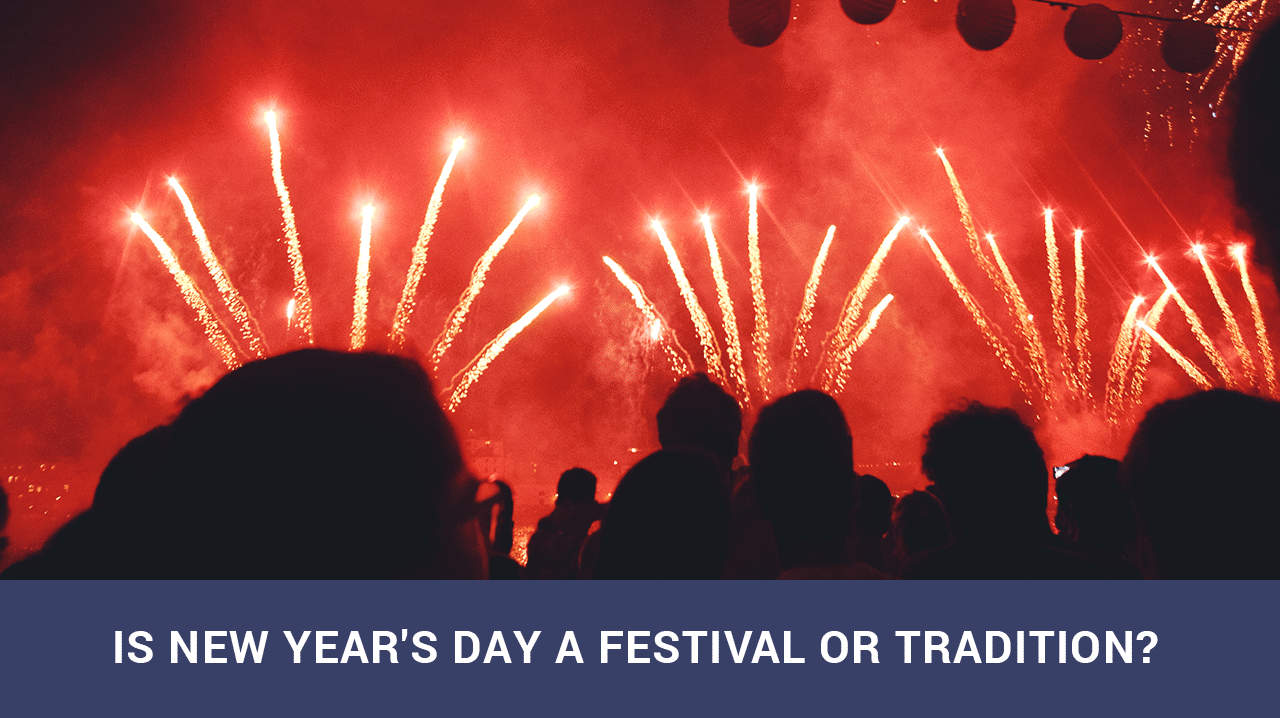Is New Year’s Day a Festival or Tradition?

New Year’s Day is an age-old tradition that the Romans started to appreciate and seek the blessing of God Janus, from whom the month of January is inspired. Janus was considered the gatekeeper, symbolising entry into new beginnings and transitions from one phase to another. People worldwide consider this day the start of the new calendar year and celebrate the occasion like a festival with their own traditions.
The traditions around this festival are not rigid and are modified and changed per the person’s liking. For example, some people might like bursting firecrackers while others might like spending time with their loved ones. Overall, this day is joyous worldwide and celebrated extravagantly, with each person making their own resolutions and commitments to themselves and the people around them.
Making New Year’s Resolution
One of the most common New Year’s traditions is making resolutions. The start of the new year fills everyone’s heart, enthusiasm, and zeal, prompting them to do better in various aspects of their lives. People usually resolve to make healthier lifestyle choices or to make themselves more independent financially.
IB board schools, like MIT Gurukul, encourage students to list things they would like to achieve and help them understand how they can achieve the same. The teachers at MIT Gurukul help students understand their strengths and weaknesses and advise them to make resolutions based on that.
New Year customs like making resolutions will help students and adults develop discipline and make positive changes to their lifestyle, making them highly efficient in every task they perform!
The New Year Signals
New Year is the completion of one year and a transition towards a new year that is expected to be filled with aspirations and goals to help ourselves do better physically and psychologically. The New Year can also signal the start of new things and movements that bring us joy and gratitude to navigate through the next 12 months with enthusiasm, zeal and a positive attitude.
New Year’s Traditions
New Year’s Day celebrations mean different things in different parts of the world. The world is culturally very diverse, and each region, which is a few hundred kilometres away from another region, has varied traditions and cultures, making New Year customs differ from one region to another. It is also important to note that every family or friend group has their New Year’s tradition, making this day of joy diverse and unique.
A few of the most popular New Year traditions involve –
- Cleaning – Many countries around the world believe that entering a new year with a clean house or office will attract positive energy, which is needed to inspire us to do better all year round.
- Smile & Laugh – Teachers around the world, including schools in Pune and the rest of India, ask their students to enter their first day at school on New Year’s Week with a bright smile. The idea behind this signal is to ensure that the school year is filled with positivity right from the beginning of the New Year!
- Bursting Fireworks – Who doesn’t like bursting some colourful crackers at the start of a New Year? People around the world have followed this tradition of bursting crackers at the beginning of a New Year for quite some time now, and it has helped bring families and friends together to enjoy a night and days of festivities.
- Dance – Yes! What can be more memorable than sharing a dance with your loved ones at the start of the New Year? Cultures worldwide follow this tradition of dancing with the ones they hold dear on the first day of the New Year. The joyous day and night are further celebrated by dancing to the tunes of the artists people like and admire, making it truly memorable for family and friends!
Gregorian Calendar
Countries follow different dates for a New Year’s start according to their culture and location. At the same time, India celebrates its New Year during Ugadi, which signifies the onset of the harvest season. The Gregorian Calendar is the most commonly followed worldwide, and this format puts January 1st of every year as the start of that calendar year.
Pope Gregory introduced the Gregorian Calendar XIII in the late 16th century, which became the standardised calendar used by everyone worldwide. All the New Year customs have since been catered around January 1st, making the date the start of the year.
New Year’s Day is always very exciting and is something we all look forward to. Best CBSE Schools and IB Schools across India, like MIT Gurukul, have made it a point to celebrate New Year’s Day with a lot of positivity by exchanging gifts and wishes, thereby incorporating a sense of gratitude and motivation amongst students of all ages!

